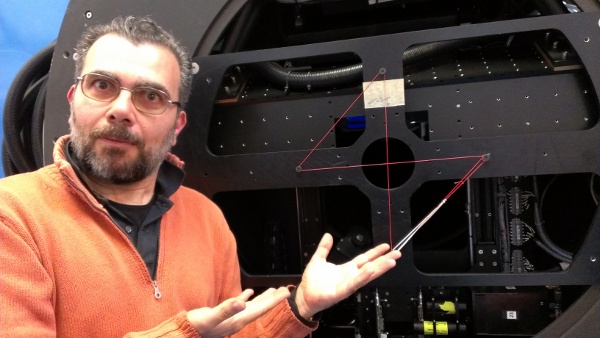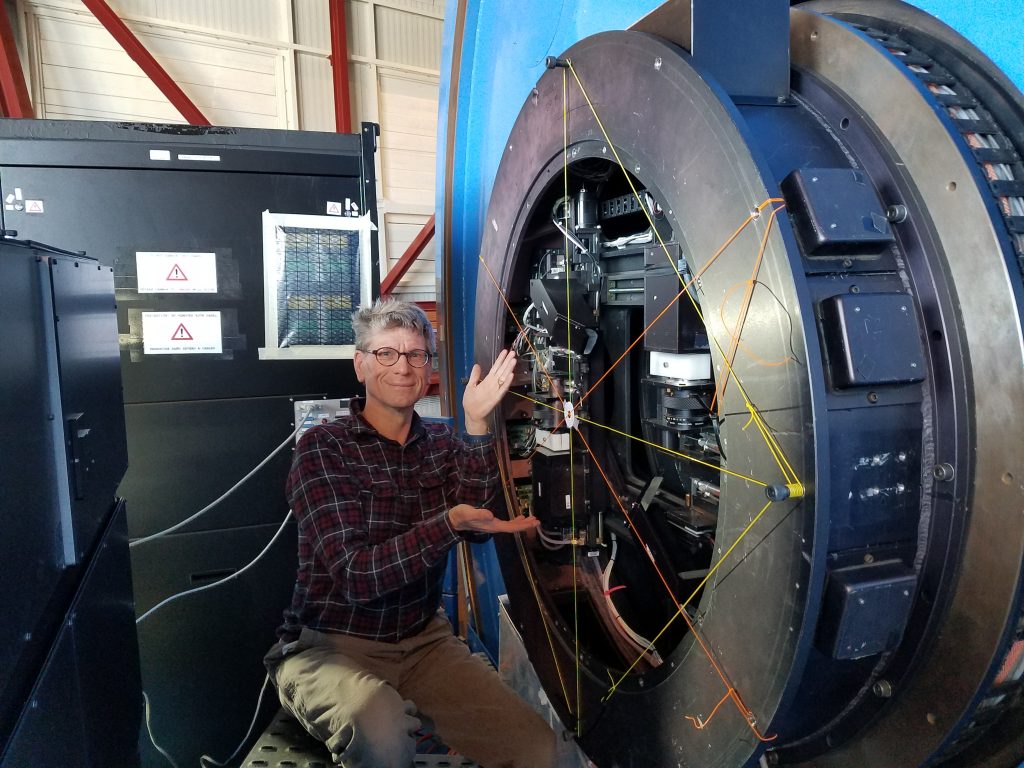Today marks another historic and successful night of MagAO-X First Light…First Light Part 2! By the end of the long 24-hour day yesterday, we were all falling asleep in our chairs (except for Olivier who has mastered the art of staying awake). But thanks to Joseph’s heroic efforts, we were still able to produce a worthy blog post for first light of the instrument!
Today we have switched to a night schedule, so our “day” technically started at 6:30pm for dinner and ended at 6:30am for sunrise. But before I continue with MagAO-X Day 5: Second Light, I have some bonus pictures to contribute from yesterday!
Here is a nice model of what MagAO-X and the electronics rack should look like next to the telescope:
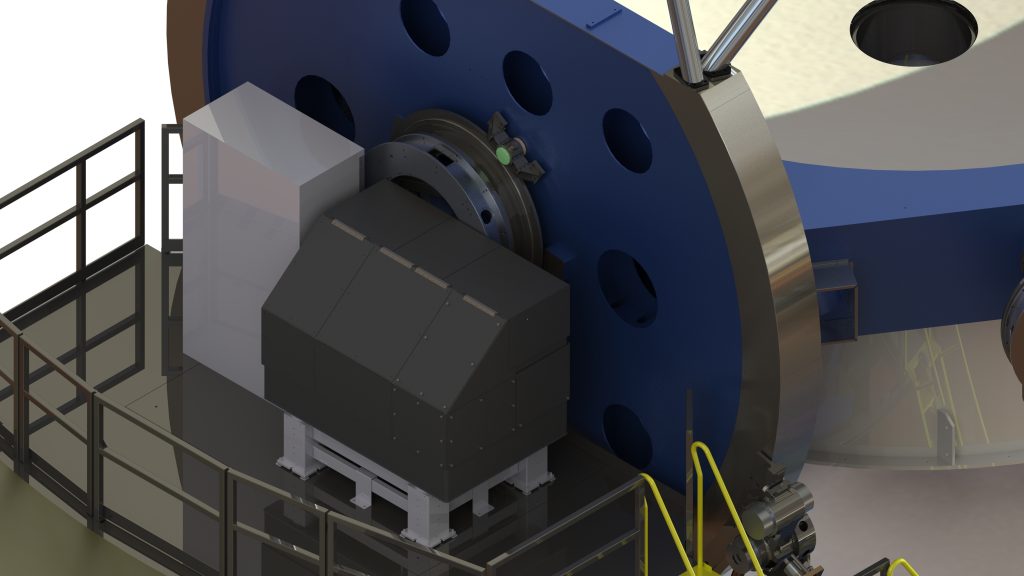
The instrument was designed to be placed 1 inch away from the Nasmyth port of the telescope, but we started with the instrument a couple feet away from the telescope to give us room for our alignment procedure.
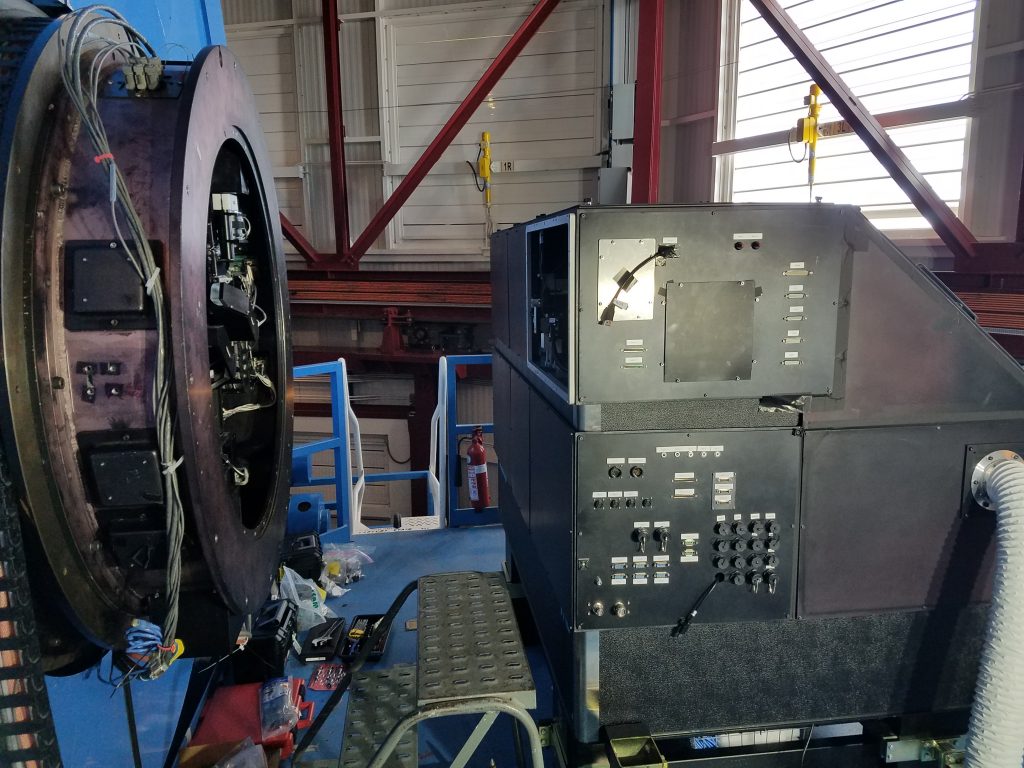
To align MagAO-X to the telescope, we needed to insert a laser into our instrument that would shine out towards the telescope. The laser light would travel through the Nasmyth port, reflect off of the tertiary mirror, reflect off of the secondary mirror, and return back to us. If light comes back and hits our instrument, then that tells us we are aligned! If not, well, then we have some work to do.
Laird used some handy dandy binoculars to look into the telescope and get an idea of what we were dealing with.
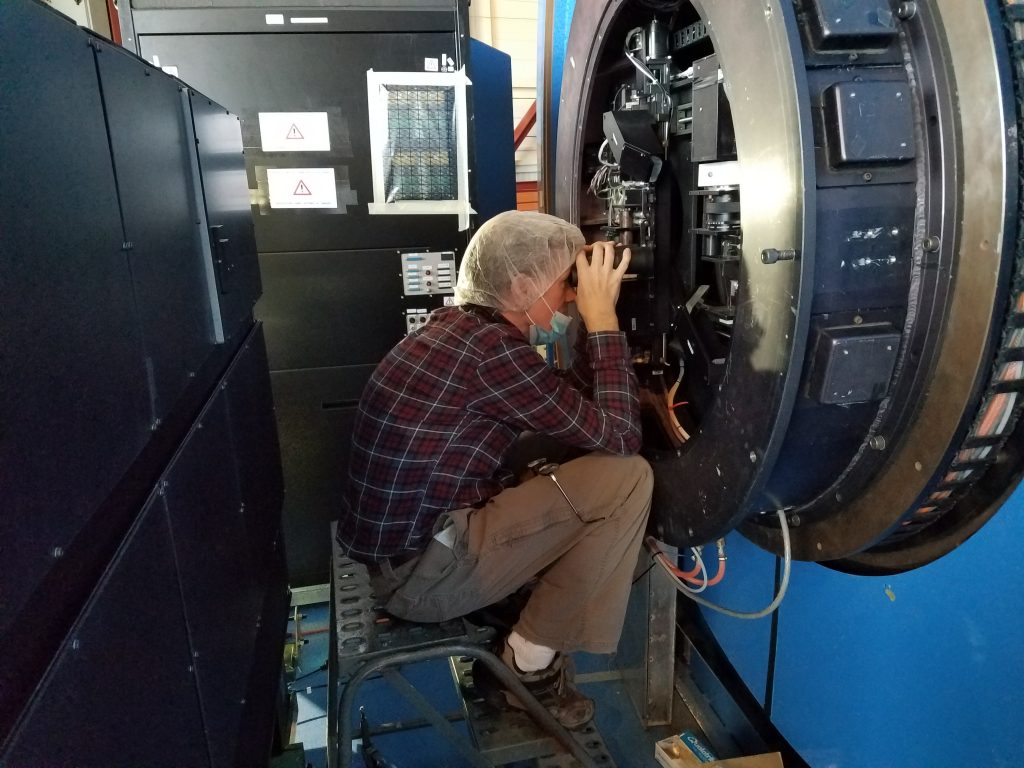
Below is what Laird’s view looked like. It is quite confusing, but we can see the tertiary mirror with the primary mirror covers cracked open, and the secondary mirror as the small black circle hiding behind the image of the mirror covers cracked open.
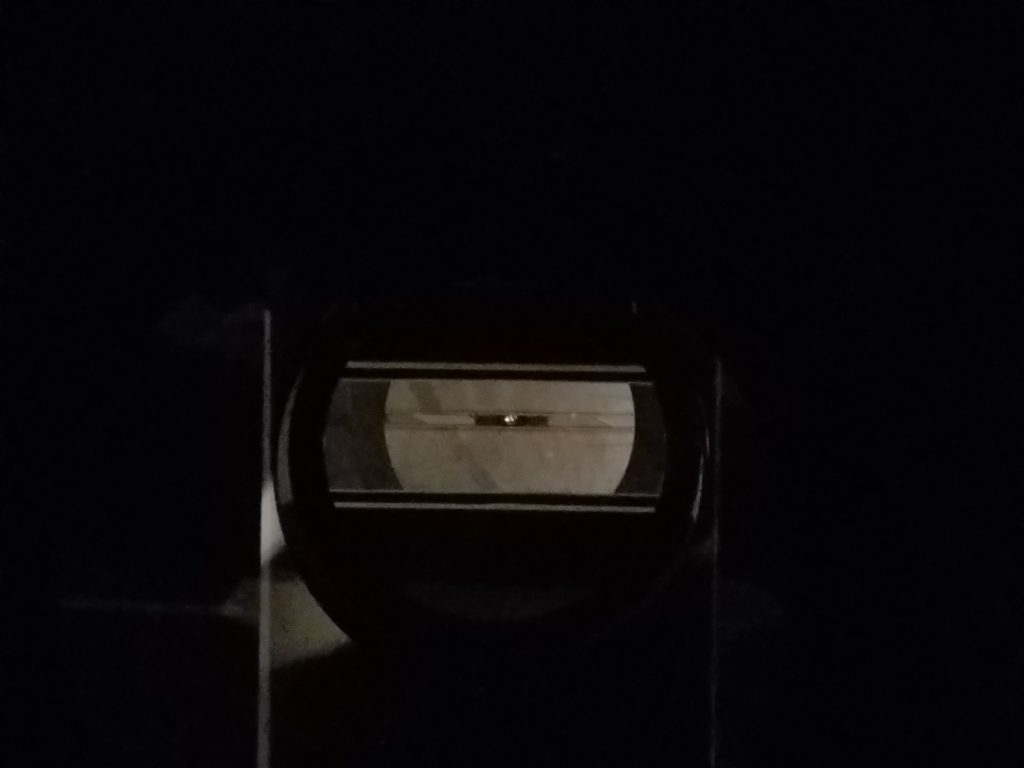
Since we learned in elementary school that 2 points create a line, we needed to create an alignment target in the middle of the Nasmyth port to make sure that our laser beam goes through the center of the Nasmyth port. Then, we looked at the secondary mirror with binoculars to see if the laser was hitting the center of the mirror. Laird used an Italian trick learned by Armando (Laird and Jared’s old colleague from MagAO) to create an alignment target at the Nasmyth port. Laird mimicked the “Armando Pose” to commemorate this neat alignment technique.
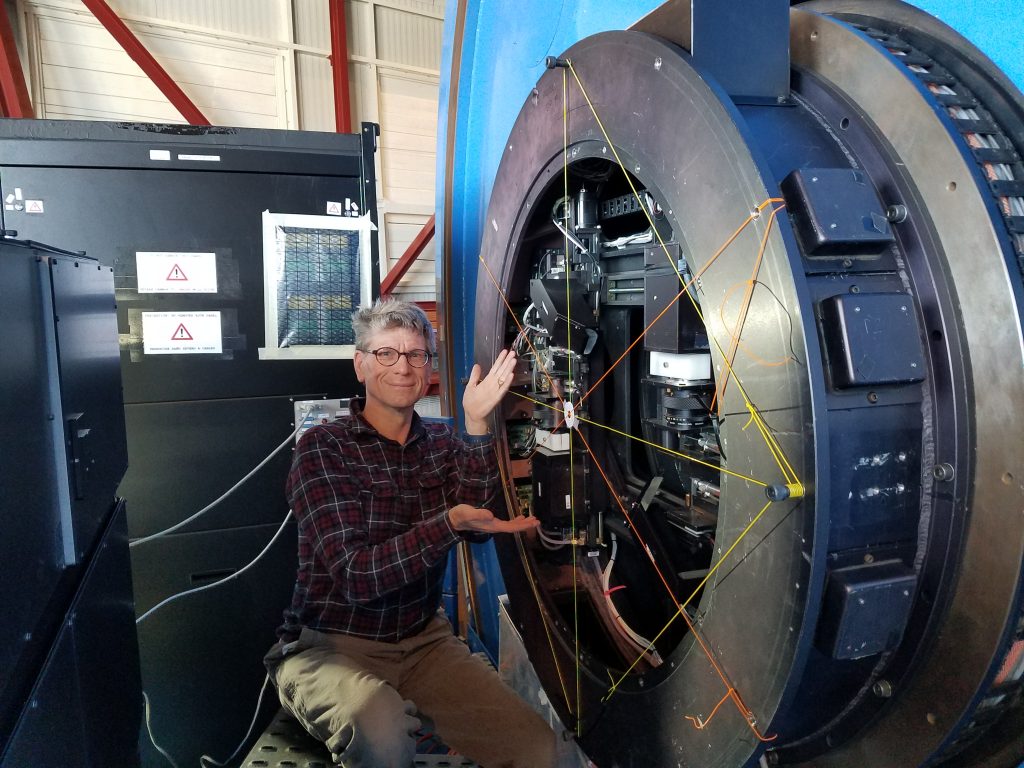
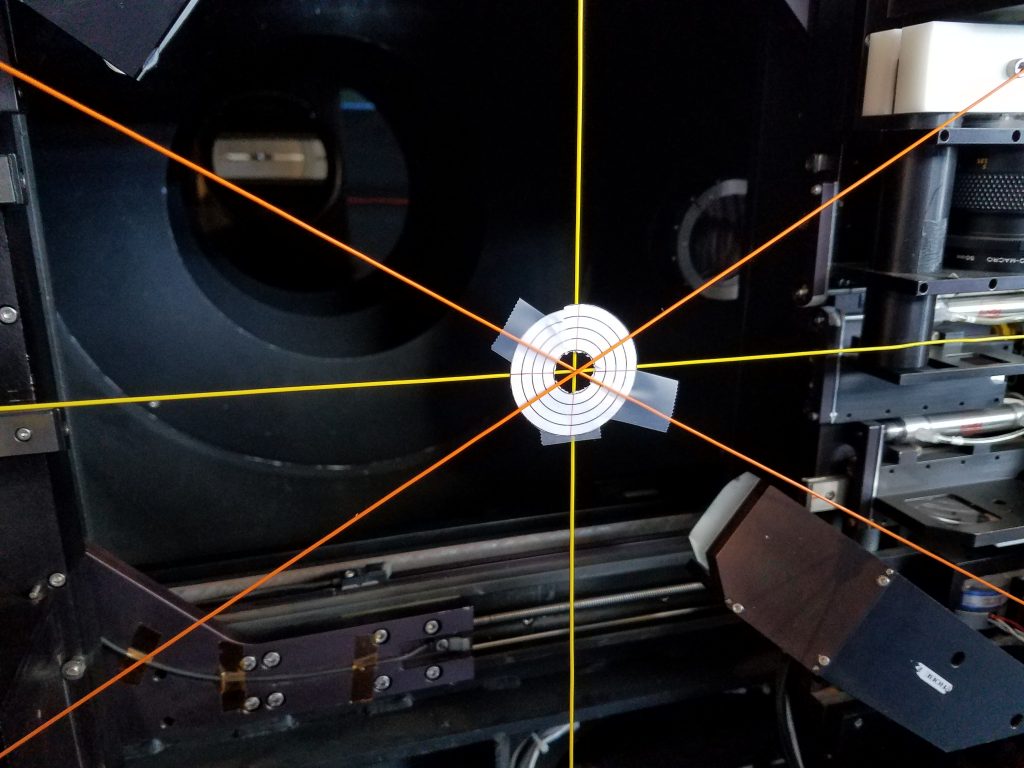
Once the alignment target was setup, we inserted our alignment laser into the instrument. The key was to align the laser so that it was aligned to our instrument’s chief ray.
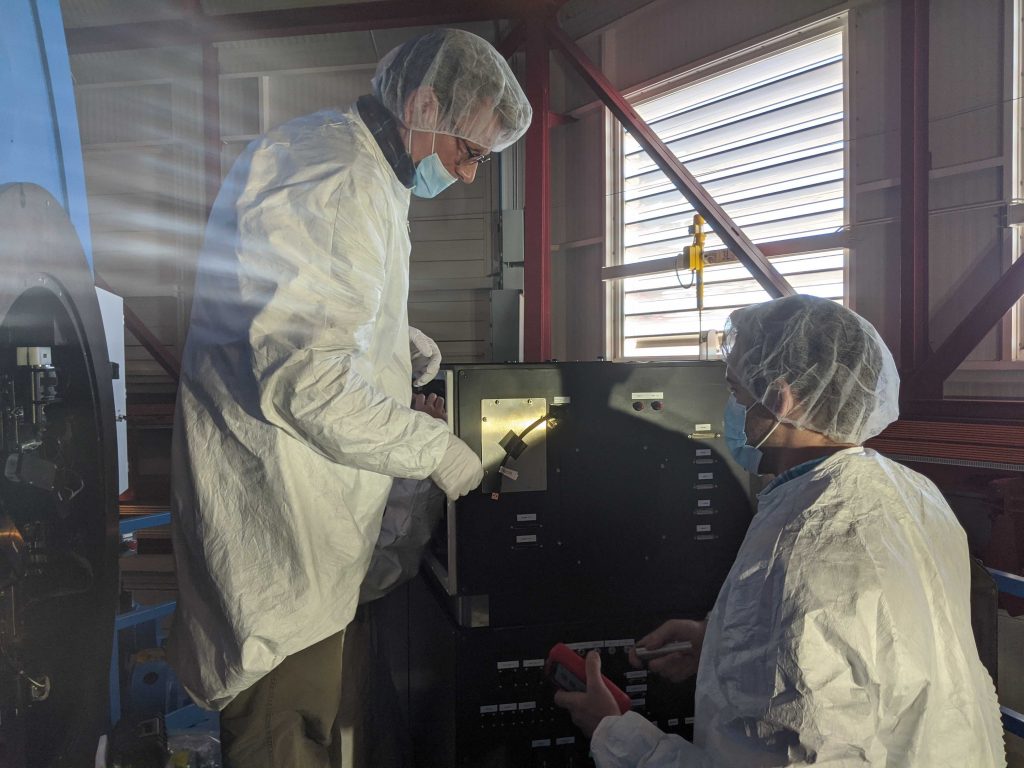
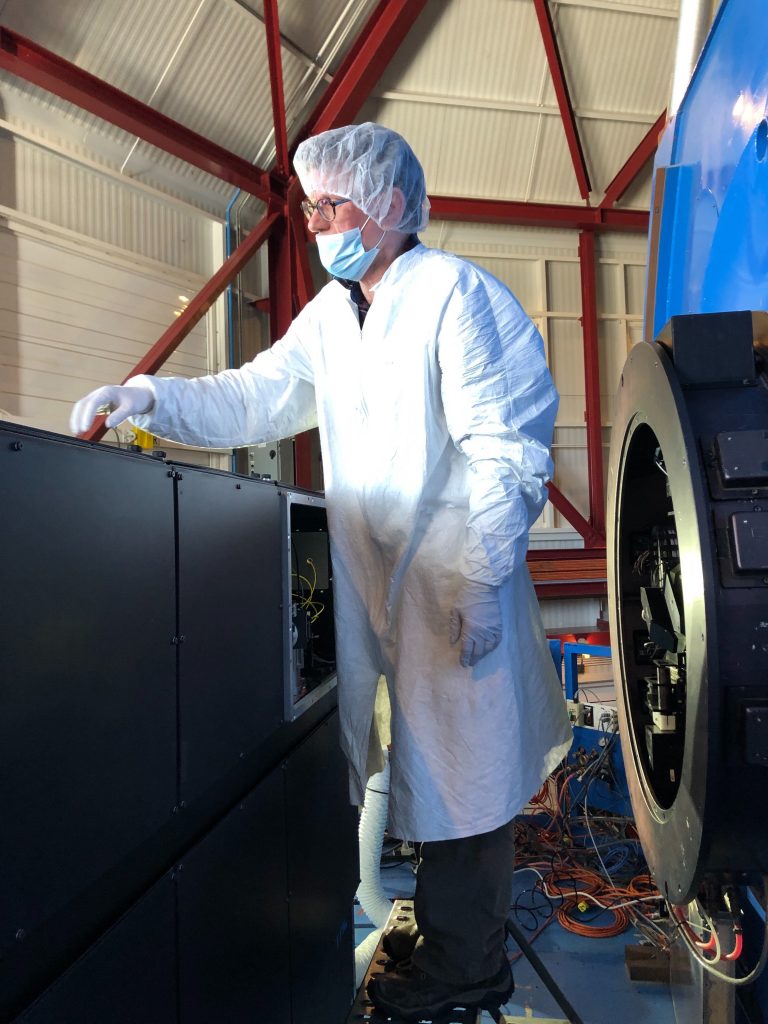
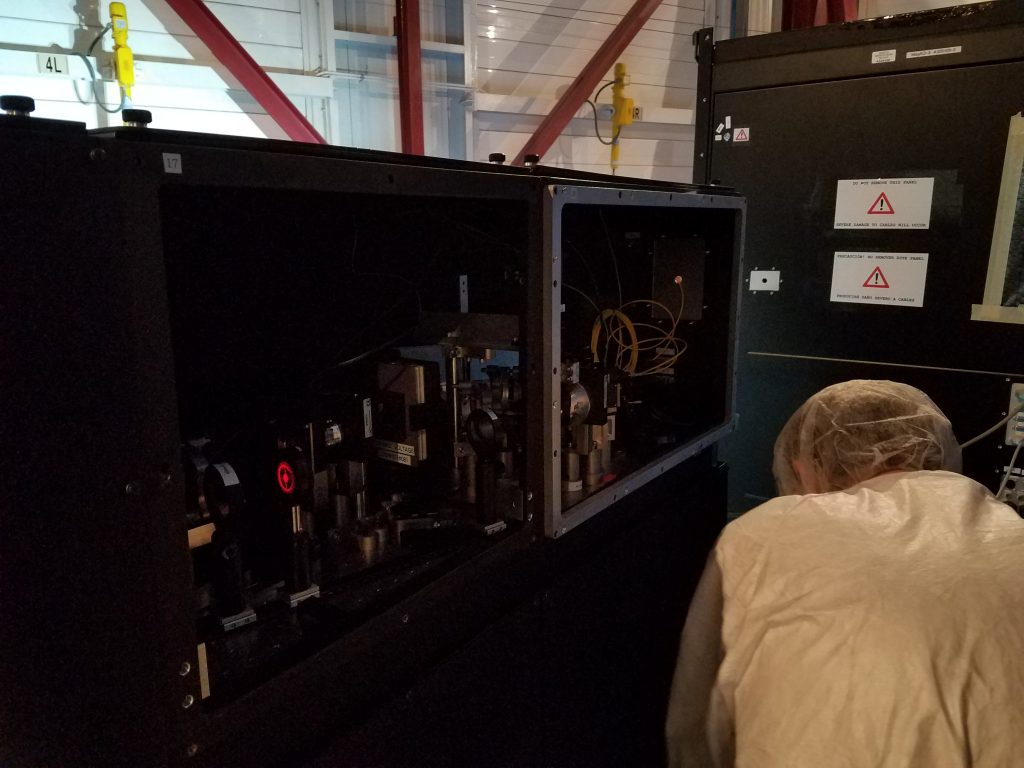
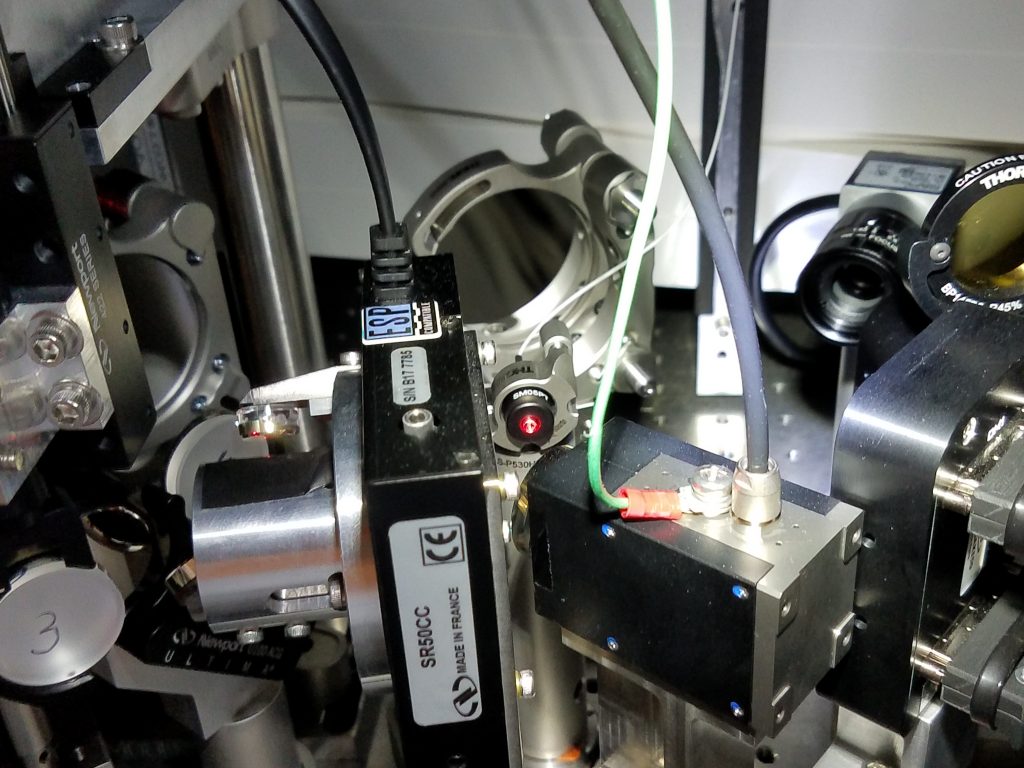
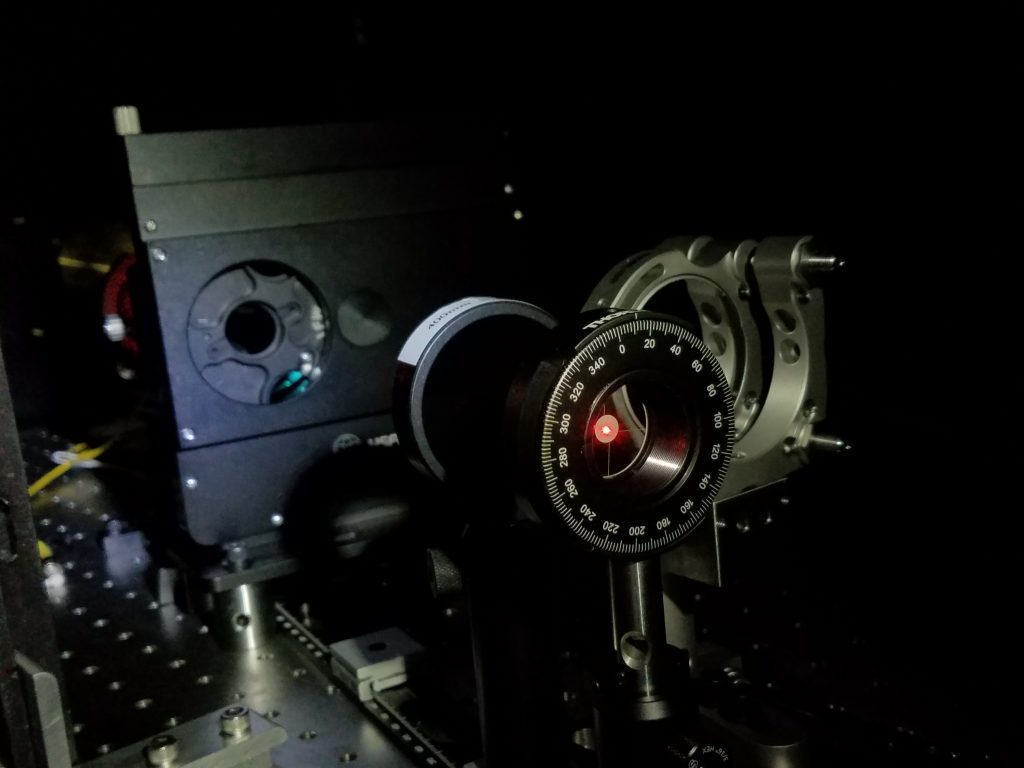
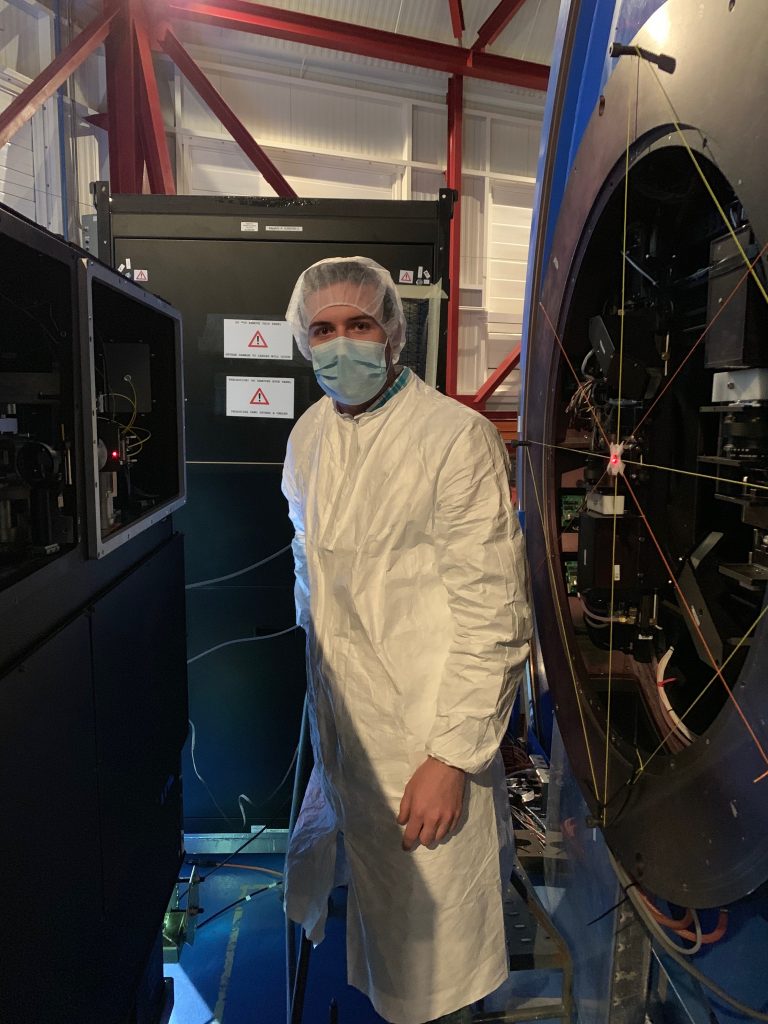
The panels were put back on and the laser shined through the entrance window.
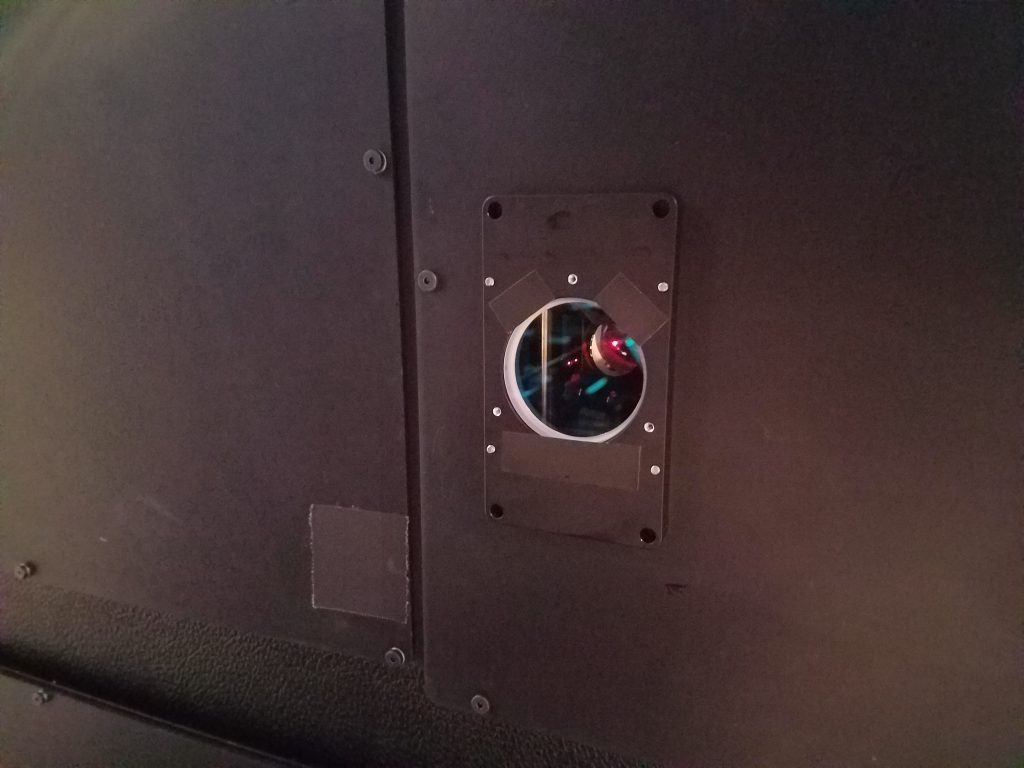
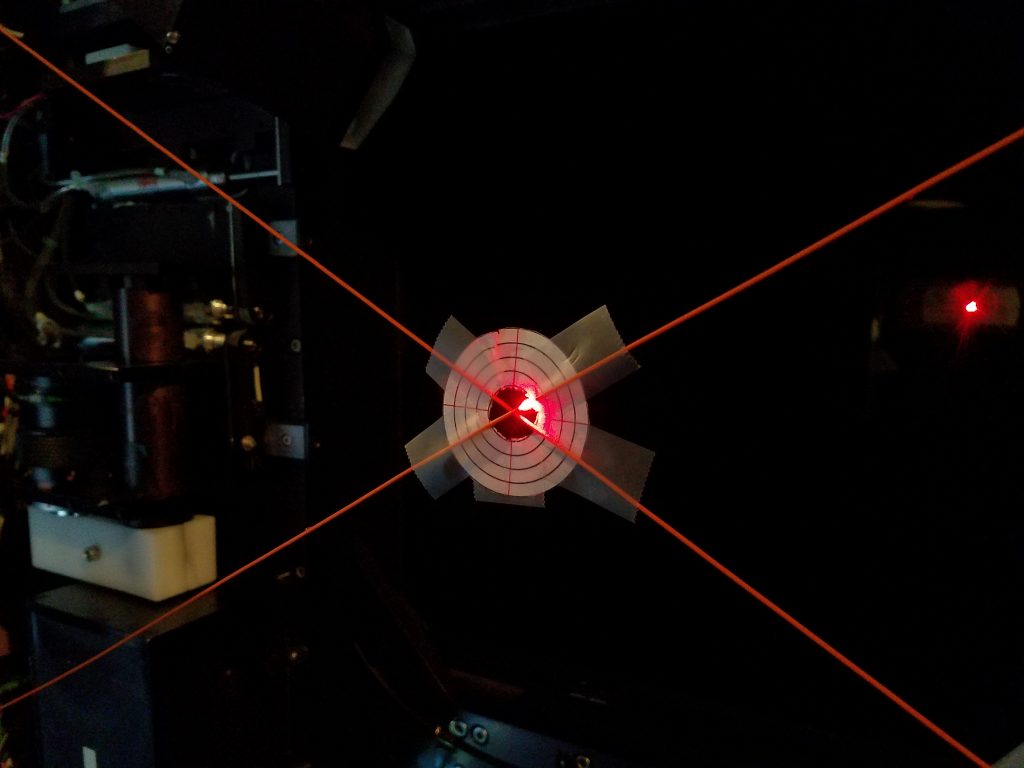
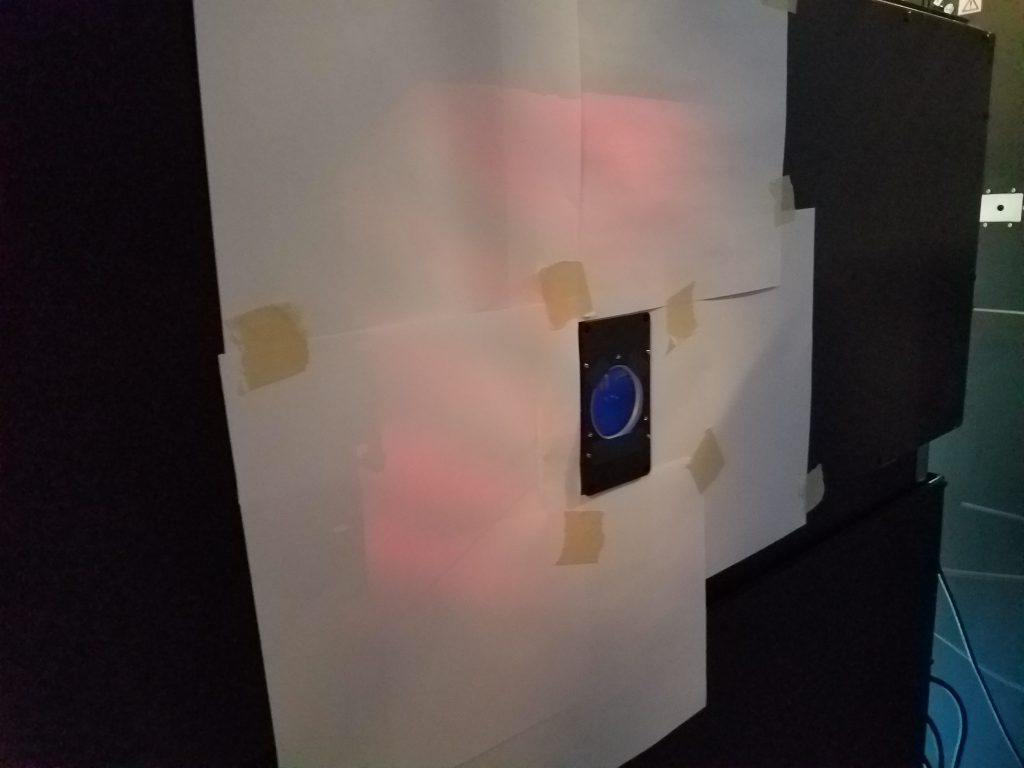
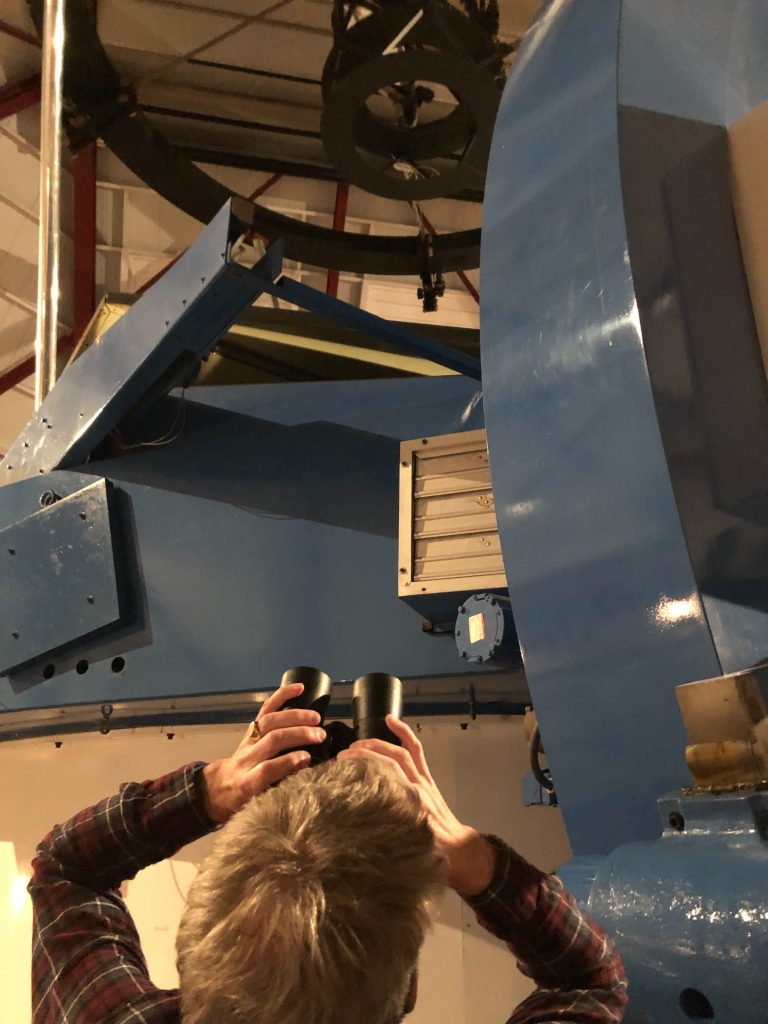
Since we proved that our alignment method would work, we moved on to the final alignment, which involved bringing the instrument close to the Nasmyth port. We had a fancy alignment rod that helped us keep the instrument centered in X.
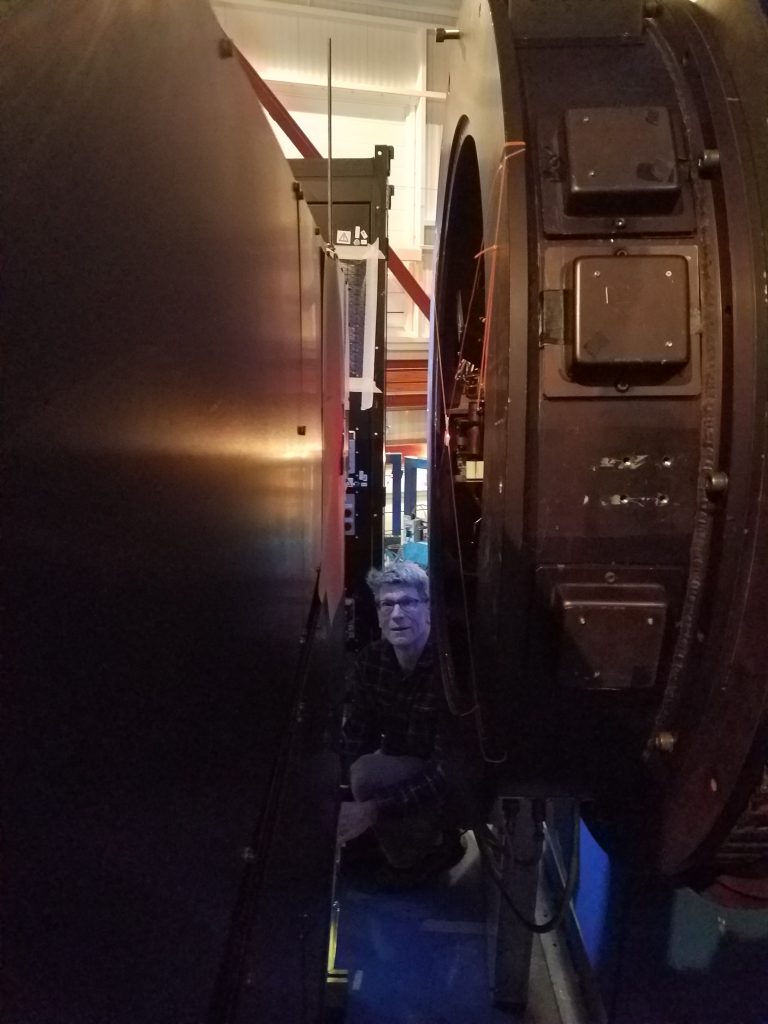
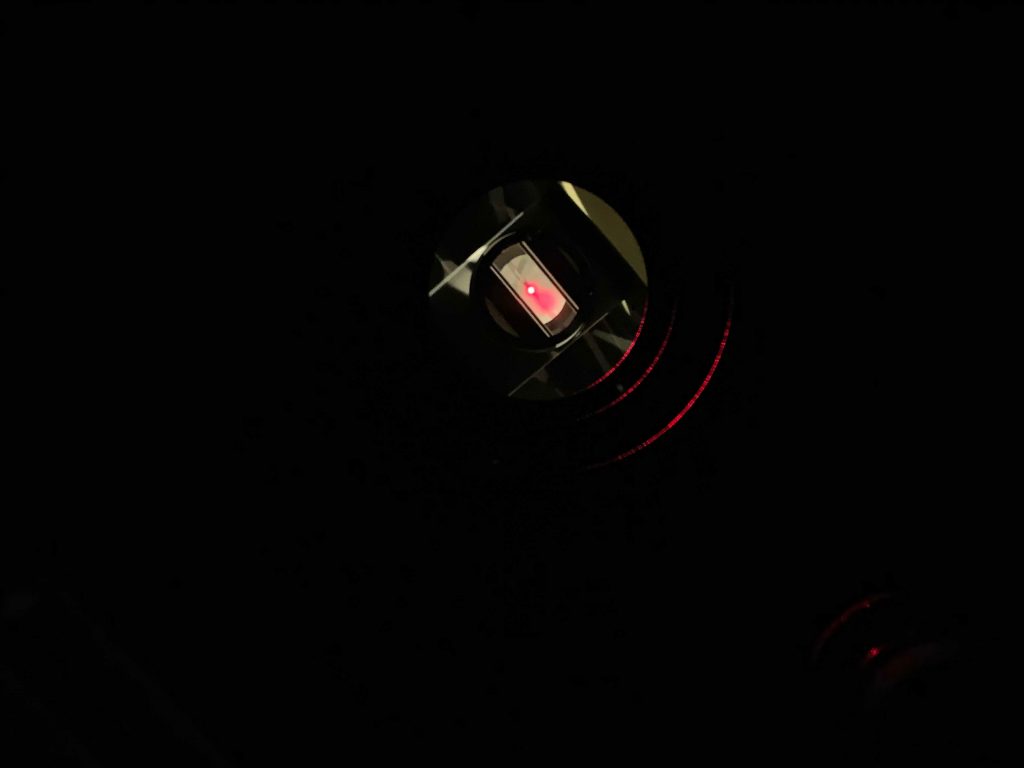
The instrument was moved into place and aligned! We measured the angle of the table with respect to the instrument for future reference using the laser tape.
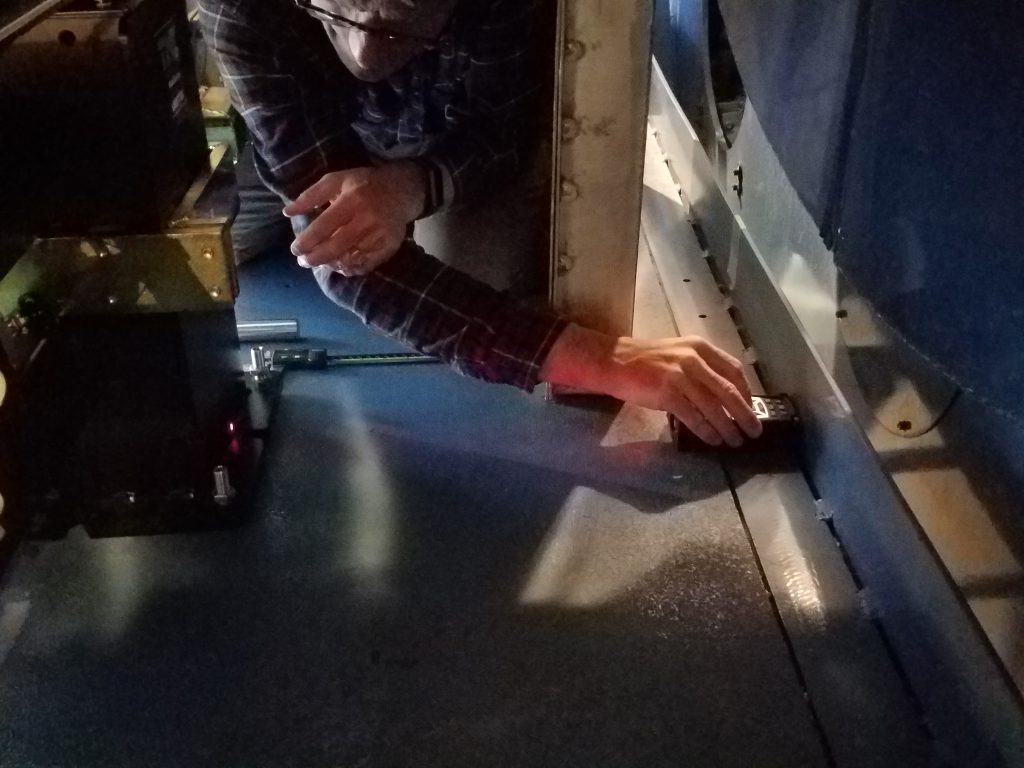
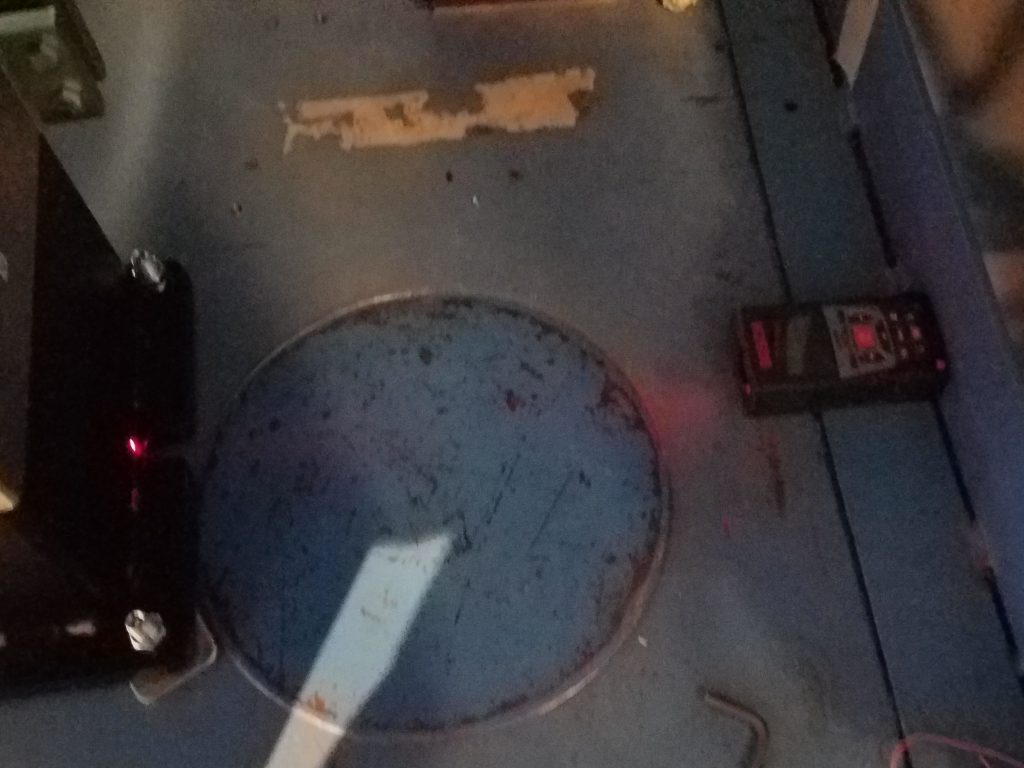
Part of the clever MagAO-X design involves a floating optical table…the instrument actually floats on a thin layer of air! No one has done something like this for an astronomical instrument before. The idea is that floating will minimize the amount of vibrations in our instrument. We did a “float test” (turning on the air and watching the instrument) to make sure MagAO-X doesn’t hit the telescope. The air system calibrates itself when turned on, so the table rocks around like a boat until it finds its position. We had to make sure we gave enough room for MagAO-X to do its thing!
Finally, Laird removed the alignment laser from the instrument.
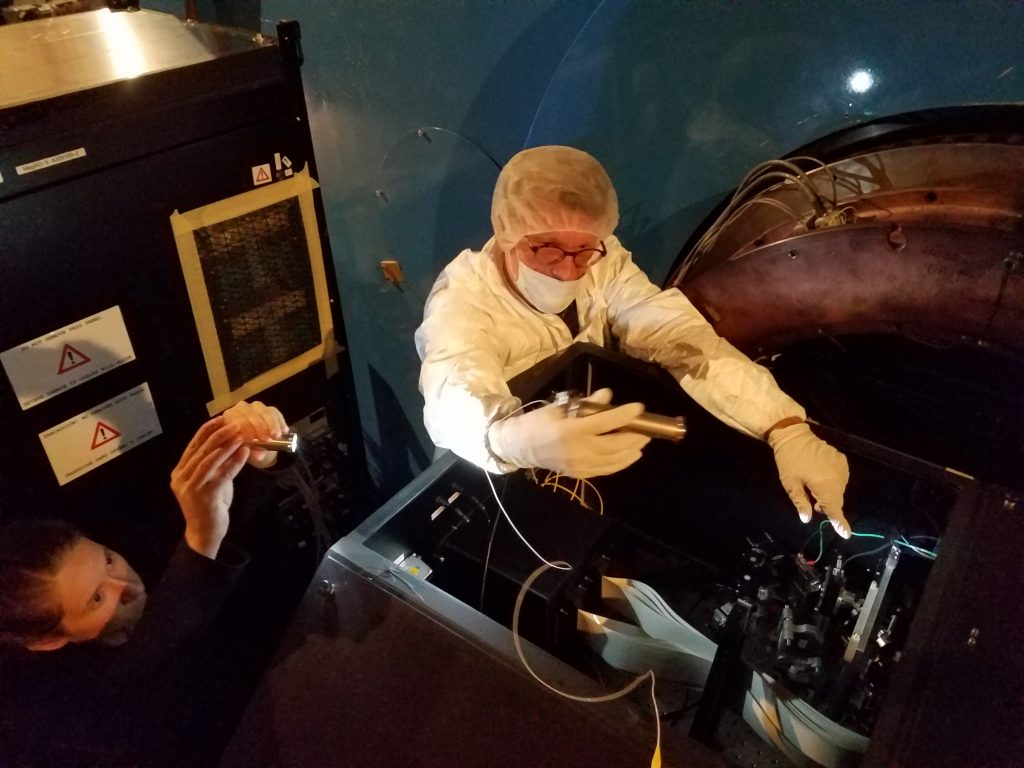
Jared and Kyle installed the tweeter cables.
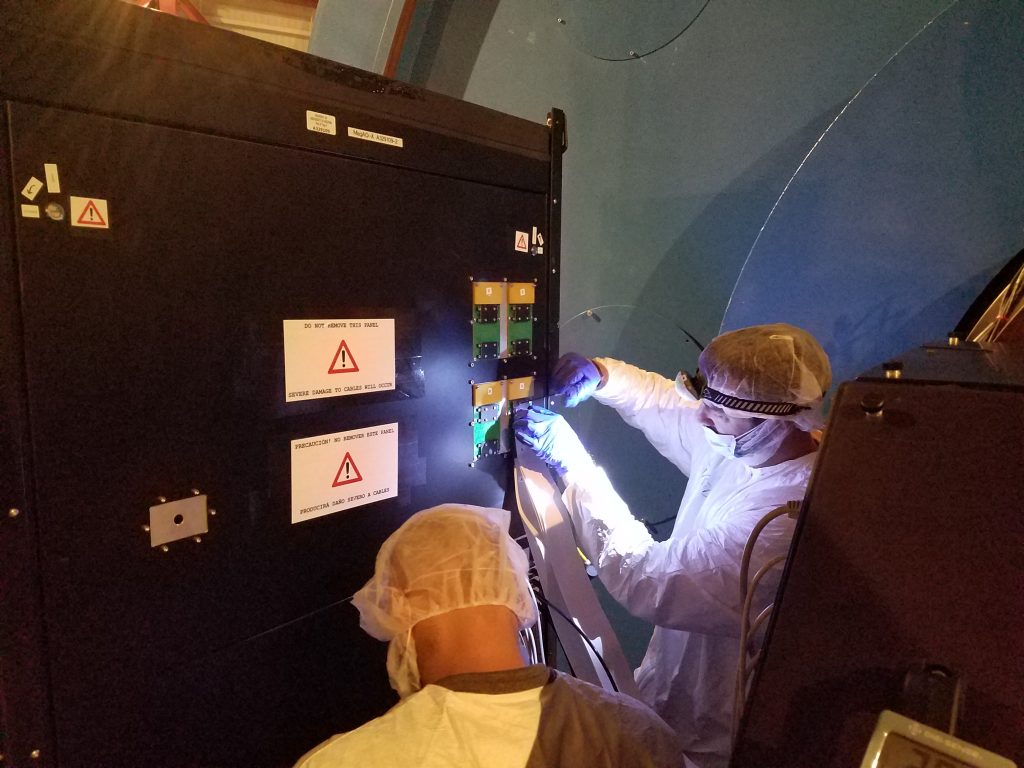
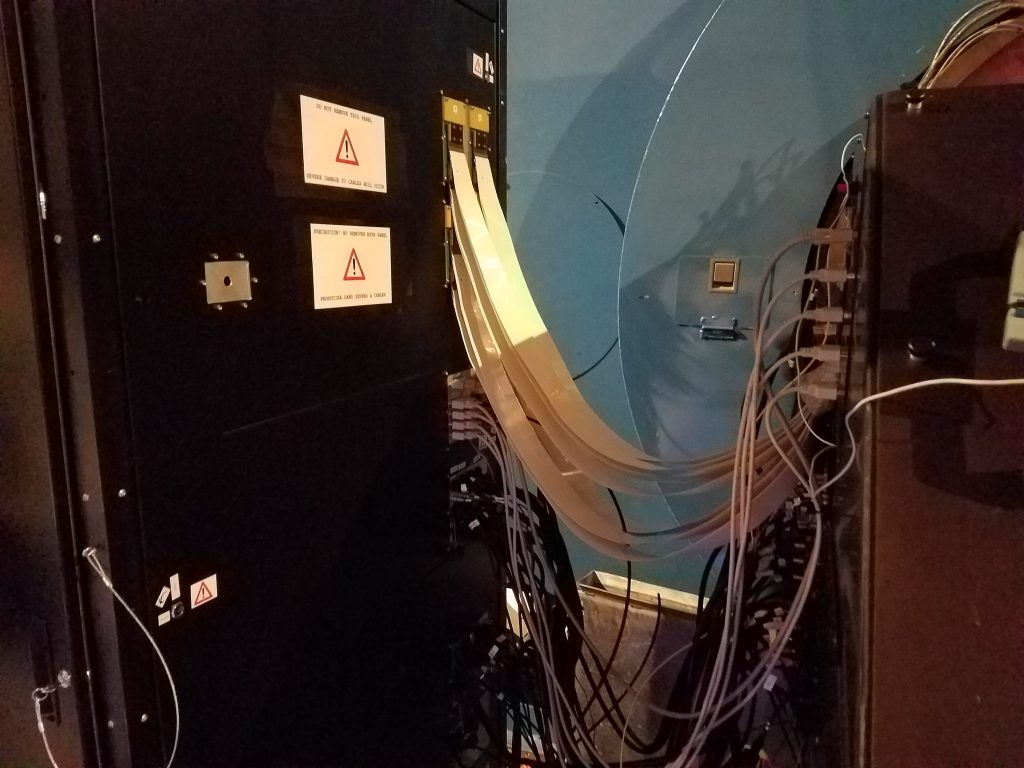
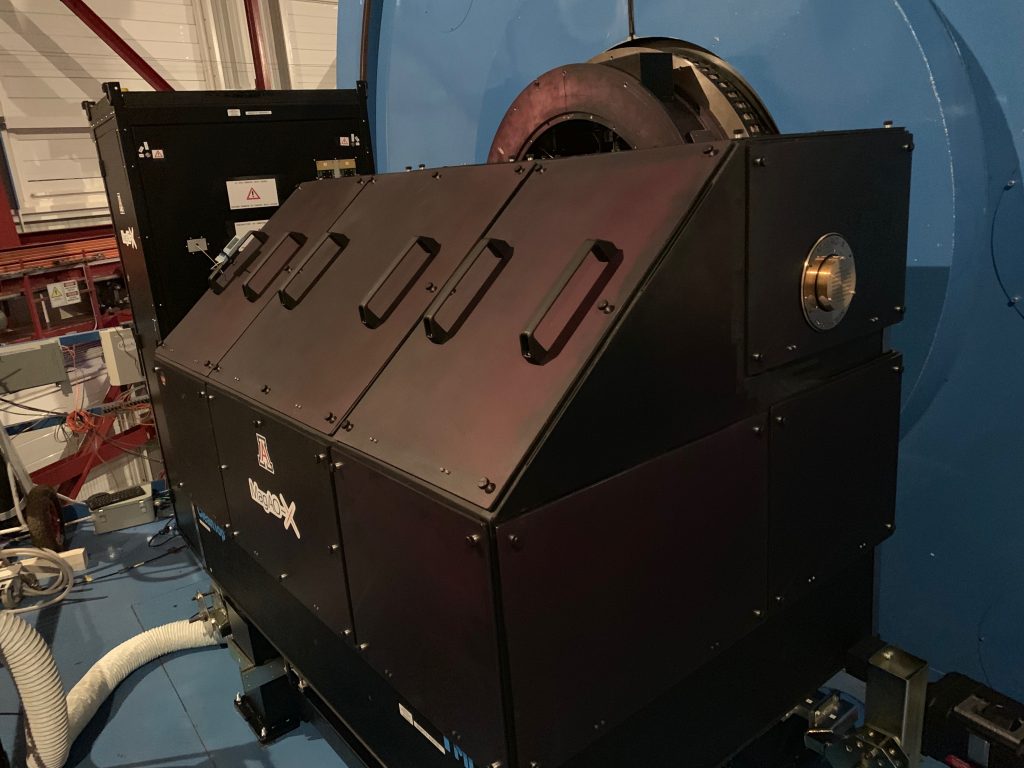
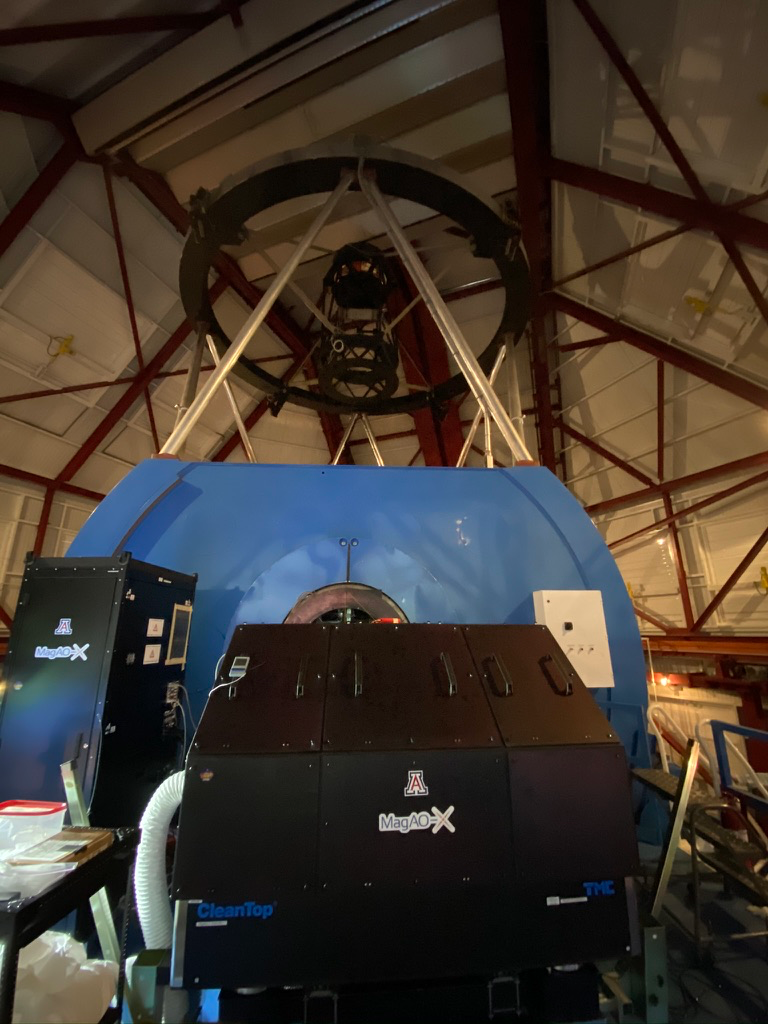
And Jared caught in the moment of first light on MagAO-X!
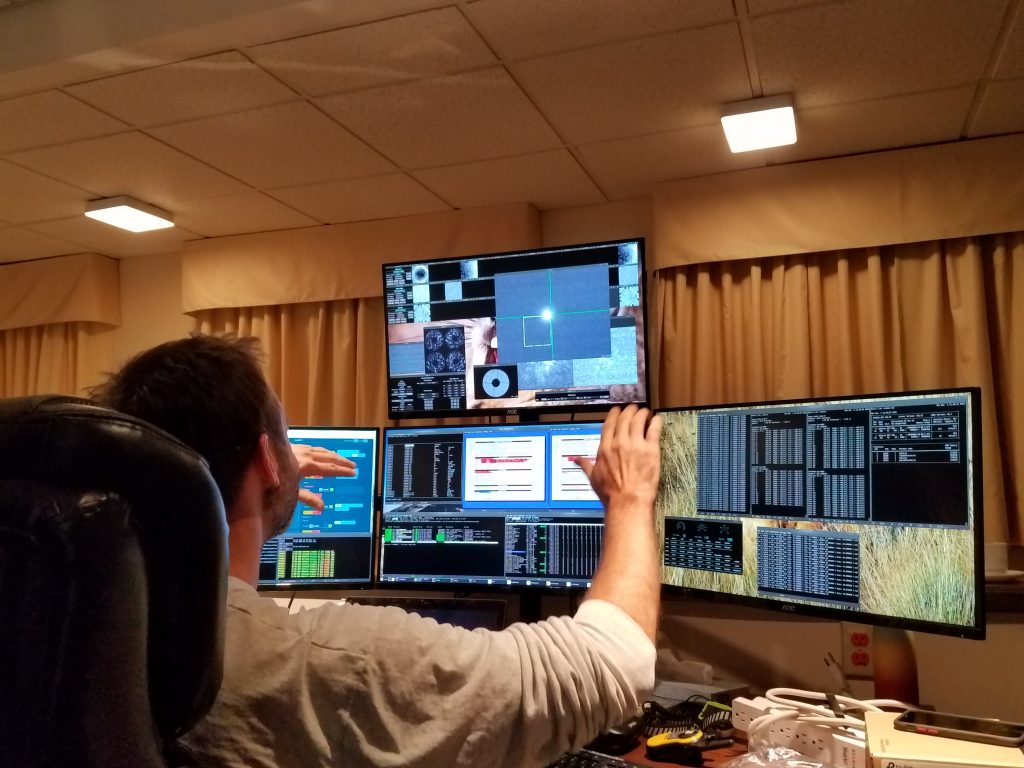
MagAO-X Day 5: First Light Part 2
Now that I shared my bonus pictures from yesterday’s adventures, here is a quick summary of First Light Part 2! The day started out with a beautiful sunset and calming scenery.
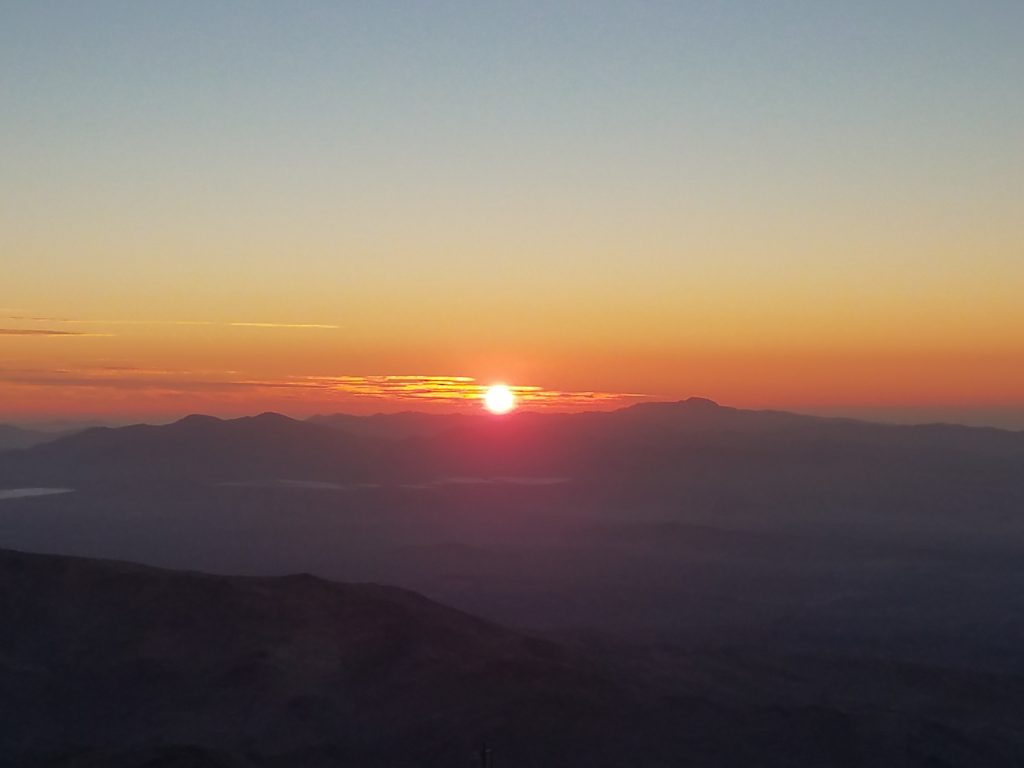
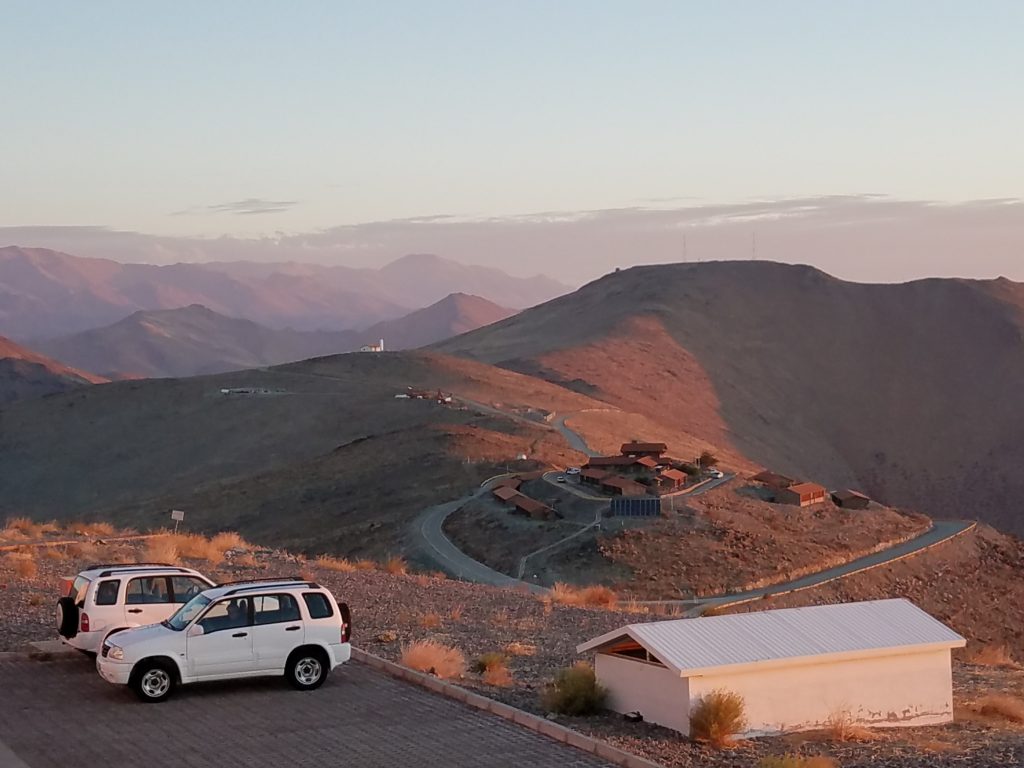
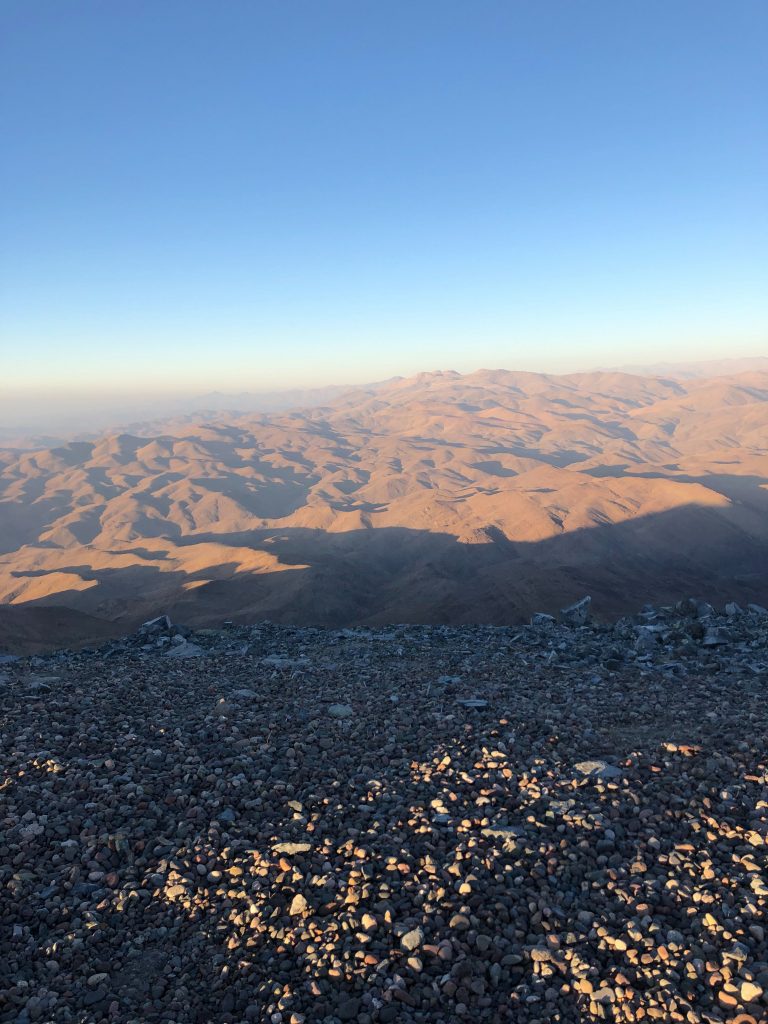
Jared and Olivier worked on Olivier’s CACAO program to calibrate the 2K deformable mirror and optimize its performance. There were a lot of improvements from the previous night, and we saw our first on-sky Airy ring!
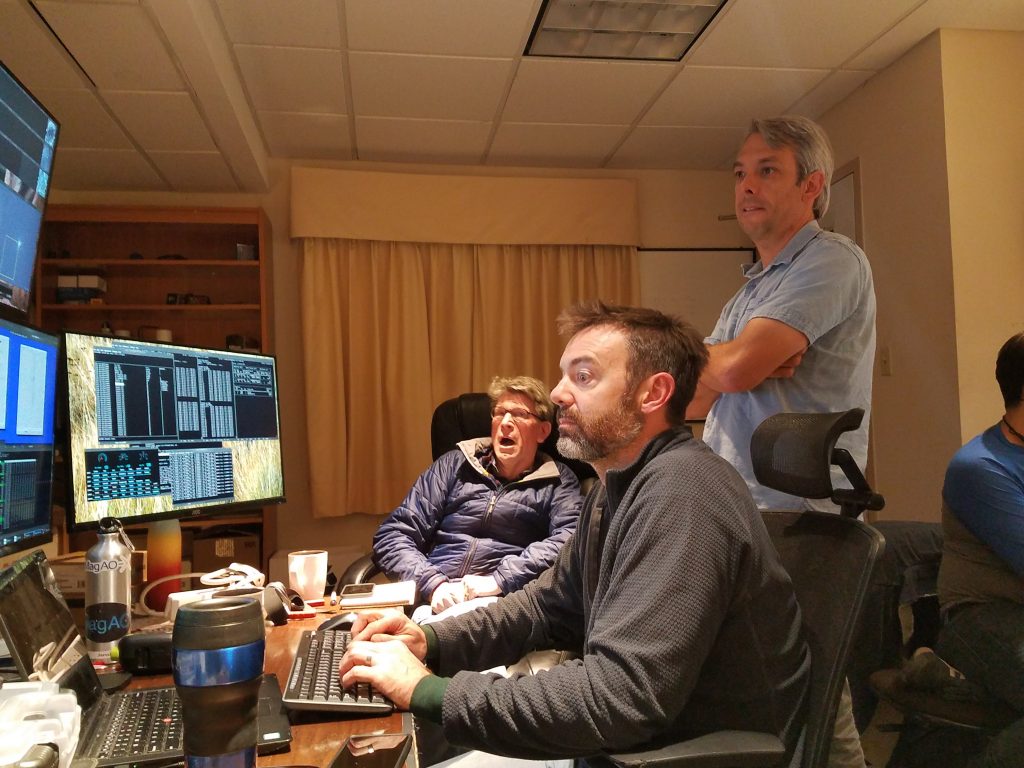
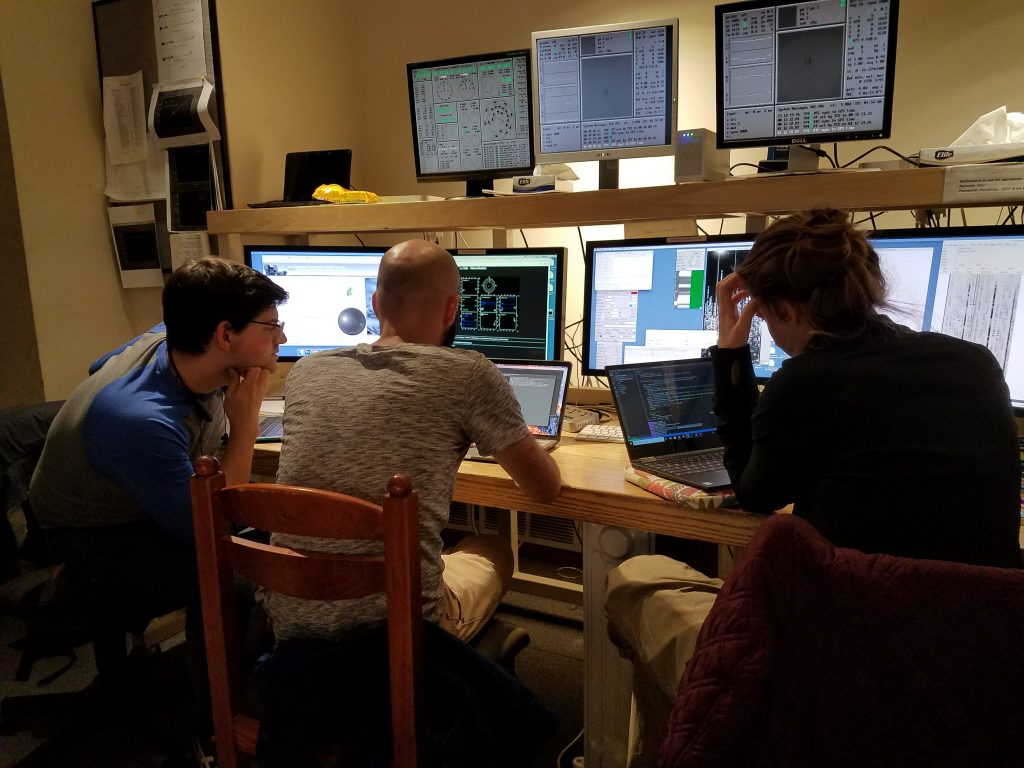
After a while of calibrations, we closed the loop and we saw our first Airy ring on sky! The left image is z’ band while the right is i band. The images look phenomenal!
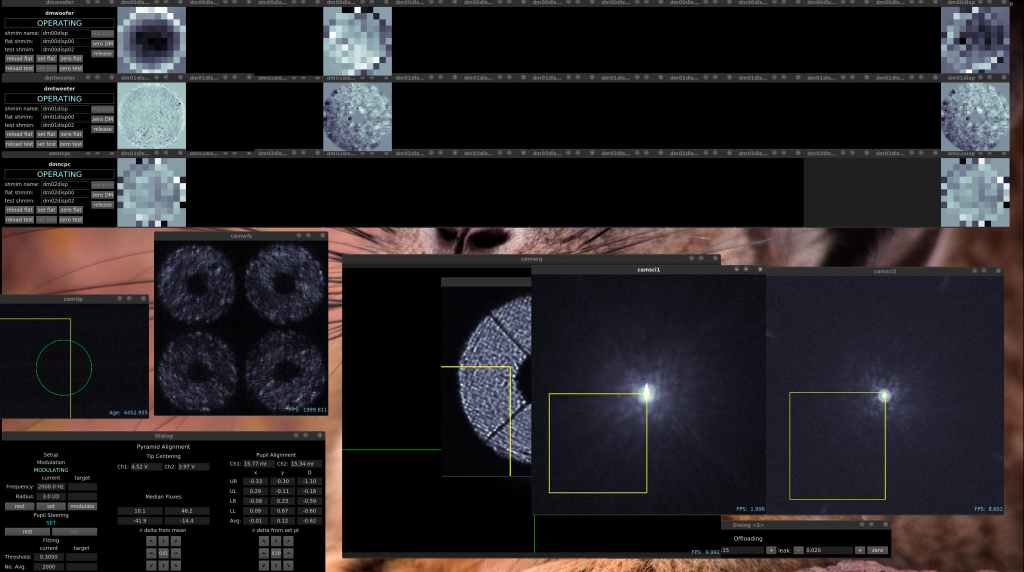
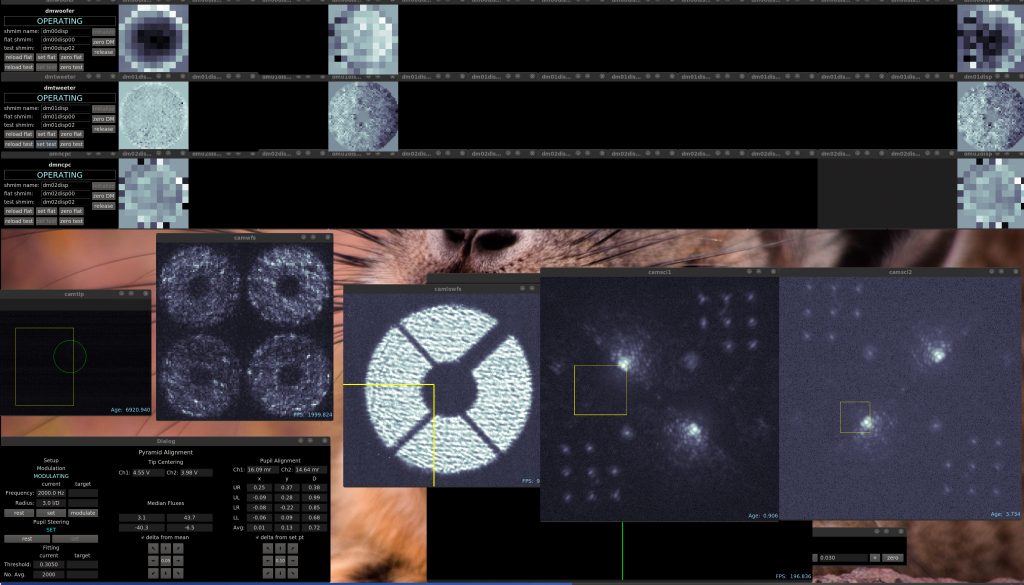
These are big moments for the MagAO-X team and we are proud of what we have accomplished so far. It feels good to look back and see how far we’ve come.
